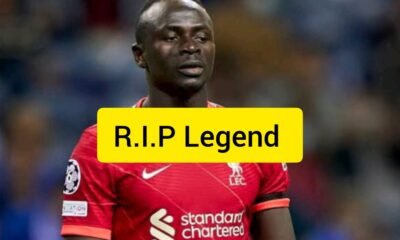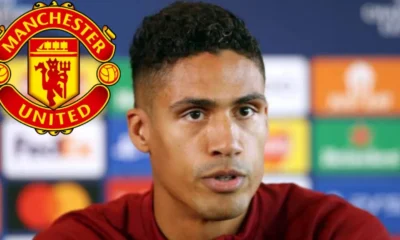Blog
Izzo’s Goodbye? The REAL Reason He’s Stepping Away From Michigan State
Izzo’s Goodbye? The REAL Reason He’s Stepping Away From Michigan State: A Clash of Philosophies Rocks East Lansing
The news hit East Lansing like a sudden, unexpected storm: Tom Izzo, the legendary figure who has been the bedrock of Michigan State basketball for decades, is reportedly stepping away from the program. The initial shock has quickly morphed into a frenzy of speculation, fueled by the tantalizing clickbait headline: “Izzo’s Goodbye? The REAL Reason He’s Stepping Away From Michigan State.” While the official narrative is expected to be carefully managed, sources within and around the university are beginning to paint a picture of a deeper, more complex reason for Izzo’s departure, one that goes beyond the typical explanations.
For anyone who has followed college basketball, Tom Izzo is more than just a coach; he’s an institution. His fierce competitiveness, his ability to develop raw talent into NBA-caliber players, and his unwavering commitment to the Spartan program have made him a beloved icon. The idea of Michigan State basketball without Izzo at the helm is almost unfathomable. Yet, the whispers are growing louder, suggesting that the decision to step away wasn’t a simple desire for a change of pace, but rather the result of a simmering internal conflict that has finally boiled over.
The “real reason,” according to these sources who wish to remain anonymous due to the sensitivity of the situation, is not a personal health issue, nor is it tied to any external pressure or scandal. Instead, it is rumored to be a fundamental **clash of philosophies regarding the future direction of the athletic department and its relationship with the basketball program.**
Sources suggest that over the past few years, a growing disconnect has emerged between Izzo and certain key figures within the Michigan State athletic administration. This disconnect, while initially subtle, has reportedly intensified, creating an environment of increasing friction and frustration for the veteran coach. The core of the disagreement is said to center on the level of autonomy and resources the basketball program should have, particularly in the rapidly evolving landscape of Name, Image, and Likeness (NIL) and the transfer portal.
Izzo, known for his old-school approach and his emphasis on loyalty and player development through traditional means, has reportedly been at odds with a push from some in the administration for a more aggressive, financially driven strategy to navigate the new realities of college athletics. This includes differing views on the role and management of NIL collectives, the recruitment of transfer portal players, and the overall allocation of resources within the athletic department.
Sources indicate that Izzo has felt increasingly constrained and unsupported in his efforts to maintain the program’s culture and values in the face of these perceived pressures to prioritize financial gain and immediate results over long-term development and team cohesion. He has reportedly expressed concerns that the focus was shifting away from the core principles that have defined his program’s success – hard work, discipline, and building a strong team identity – towards a more transactional approach to roster building.
The tension, according to these whispers, has manifested in various ways, from disagreements over budget allocations for recruiting and staff to frustrations regarding the level of administrative support for navigating the complexities of the NIL landscape. While these issues might seem like standard administrative challenges, sources suggest that for Izzo, they represent a fundamental challenge to the very foundation of his coaching philosophy.
The decision to step away, therefore, is being framed by these sources not as a resignation in defeat, but as a principled stand. Izzo, unwilling to compromise his core beliefs and feeling that he could no longer effectively lead the program under the perceived constraints and differing priorities, has reportedly chosen to walk away rather than preside over a program that he feels is being steered in a direction he fundamentally disagrees with.
The timing of the announcement, while disruptive, is seen by some as a strategic move. By making the decision now, Izzo is reportedly forcing the athletic department to confront the reality of his departure and the underlying issues that may have contributed to it. It also gives the university an opportunity to recalibrate its approach and find a successor who aligns with the future vision of the athletic department.
The news of Izzo’s departure, and the alleged “real reason” behind it, is likely to ignite a passionate debate among the Michigan State fanbase and within the broader college basketball community. It highlights the growing tensions between traditional coaching values and the rapidly commercializing landscape of college athletics. It also raises important questions about the balance between financial sustainability and maintaining the integrity and culture of athletic programs.
As the official statements are released and the university begins the process of finding a new head coach, the full extent of the internal conflict that may have led to Tom Izzo’s departure will likely become clearer. However, if the whispers are true, the “real reason” behind his goodbye is a powerful illustration of the challenges facing even the most established and successful figures in college sports as they navigate a landscape that is constantly evolving and, in some cases, fundamentally changing the game they love. The Spartan faithful will undoubtedly mourn the loss of their iconic coach, but perhaps understanding the nature of the battle he may have been fighting will provide a deeper context for this unexpected and seismic shift in East Lansing.
-

 Arsenal2 years ago
Arsenal2 years agoSad News Arsenal ex player who is goal scorer confirmed dead this morning
-

 Liverpool2 years ago
Liverpool2 years agoSad News Sadio Manè Confirmed Dead Today By Sky Sports Reporters, Open For Full Story 👇
-

 Blog1 year ago
Blog1 year ago“I was forcefully removed from Manchester United squad and now I’ve joined the best team in the world…I will revenge and as a result, I’ve ordered my friend who’s their best player currently to leave there with immediate effect and he has agreed”: Former Man United player angered by United decision to removed him from the squad as he ordered the Club’s best player to leave immediately.
-

 Blog1 year ago
Blog1 year agoSad News: Manchester United player died when playing for his country England yesterday 😢 😔
-

 Blog2 years ago
Blog2 years agoR.I.P: Formal Real Madrid and France international confirm death this morning
-

 Chelsea2 years ago
Chelsea2 years agoBreaking New:”Roman Abramovich could get Chelsea back”? Chelsea owner review the conversation between him and Roman Abramovich in. Deal about getting Chelsea back
-

 Blog2 years ago
Blog2 years agoUNBELIEVABLE: Manchester City midfielder KELVIN DE BRUYNE divorced wife this morning after DNA test revealed their 5 years old son belongs to formal Manchester United player
-

 Manchester United1 year ago
Manchester United1 year agoOFFICIAL NOW: Manchester United announce the signing of 23yr sensational player after beating Liverpool and Madrid for His signature, agreement reached on a 5yr deal, Medical completed – announcement ongoing












